All opinions emphasize the need to ensure human rights and civil rights.
Regarding the draft Law on Temporary Detention, Temporary Imprisonment and Prohibition of Leaving the Place of Residence, Deputy Duong Khac Mai ( Lam Dong ) agreed to add many regulations to effectively manage people banned from leaving their place of residence, ensuring the strictness of the law.
He also agreed with the application of digital technology in the process of managing detainees and prisoners, such as collecting biometric data, but emphasized the need to ensure privacy, comply with laws on personal privacy protection, and only use information collected during detention.
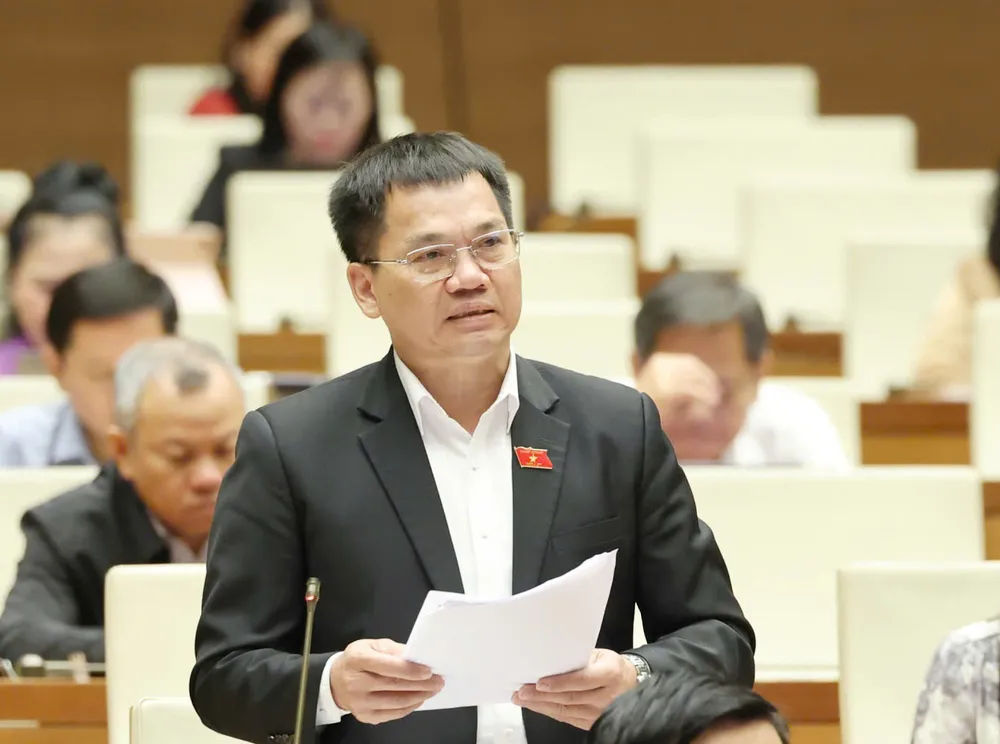
Regarding the regulation that prisoners are only allowed to receive money and essential items (and not other gifts in kind as is currently the case), Deputy Duong Khac Mai said that this is easy to manage, but affects the psychology of prisoners as well as their relatives.
“It is possible to allow this to increase family responsibility, positively impact the psychology and emotions of prisoners to have more motivation to reform well. The problem is that it is necessary to strictly control the types of artifacts sent in. With current technology, I think the control is feasible,” said Deputy Duong Khac Mai.
Sharing the same concern, Deputy Nguyen Tao (Lam Dong) proposed that the draft Law on Detention, Temporary Detention and Prohibition of Leaving the Place of Residence assign the Government to specify the detailed regulations on the time of periodic visits to prisoners, and specify the list of goods sent to prisoners to create a clean environment in prisons.
From practical work, Deputy Tran Duc Thuan (Nghe An) reflected that the system of more than 400 border posts, especially in remote areas, faces great difficulties when detaining people. "Previously, people could be sent to the district police's temporary detention camp, but now if they have to be sent to the province, it is very far away. It is recommended to study and supplement regulations for the border guard force to organize temporary detention cells and have the authority to carry out investigative measures according to the law to effectively fight against crime," Deputy Tran Duc Thuan raised the issue.
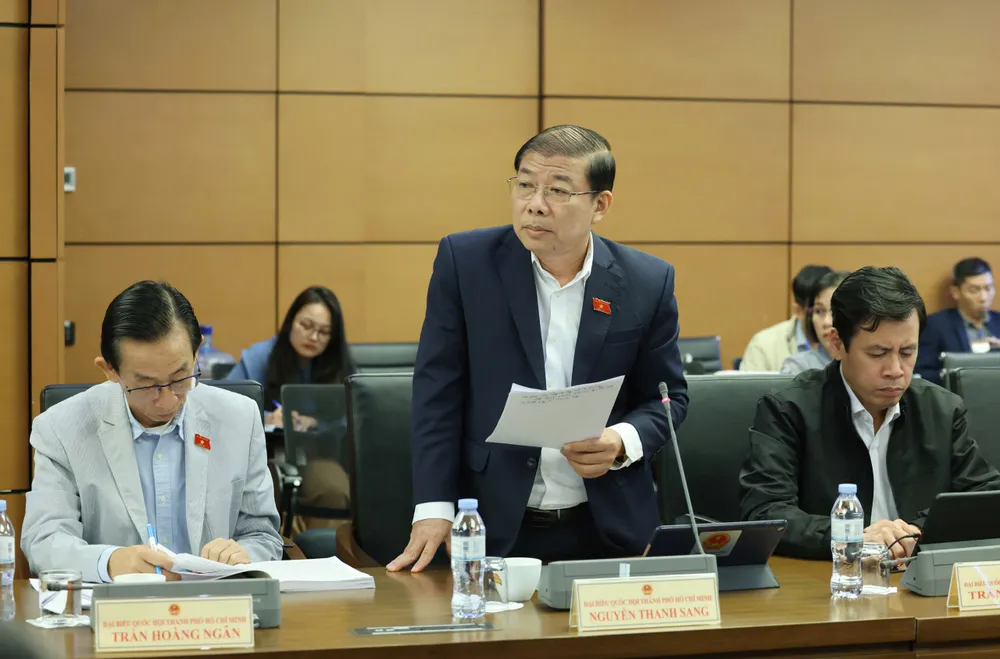
Deputy Nguyen Thanh Sang (HCMC) commented on the draft Law on Enforcement of Criminal Judgments (amended). If a prisoner shows signs of illness, to avoid repeated exchanges, the Deputy suggested assigning the authority to request an appraisal to the prison, the provincial and military region enforcement agencies. Based on the appraisal results of the specialized agency, a request file will be prepared and sent to the court to decide on temporary suspension or compulsory medical treatment.
Deputy Nguyen Thanh Sang also expressed his support for the regulation that prisoners have the right to donate tissues, body parts, and store eggs and sperm. "This demonstrates humanity, humanity and depth, and fulfills the wishes of prisoners to contribute to their families and communities," Deputy Nguyen Thanh Sang expressed his opinion and also suggested that the drafting committee allow prisoners to donate tissues to their relatives with the conditions of being voluntary and in good health.
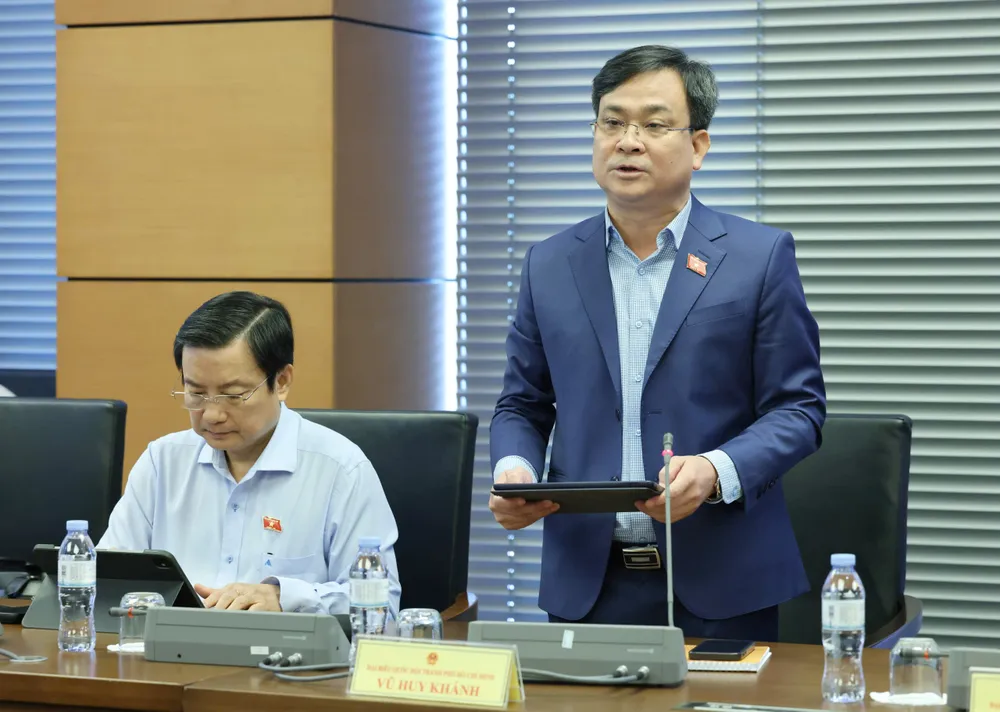
Delegate Vu Huy Khanh (HCMC) proposed adding one article to include a temporary detention cell for the special zone police, both to meet the requirements of fighting crime and meeting the practical requirements of the current two-level local government model.
Giving comments on perfecting the Law on Judicial Records, Deputy Nguyen Huu Thong (Lam Dong) commented that in reality, there is often abuse of requests to provide judicial records.
For example, technology drivers are required to submit a form every 6 months. “The draft needs to assign the Government to specify the cases that require submission of forms and automatically update them periodically. Especially form number 2 (showing all changes, even when the criminal record has been erased). This is a step forward in protecting privacy; but the draft needs to add cases that meet immigration regulations and fulfill international commitments…”, Deputy Nguyen Huu Thong proposed.
Speaking at the discussion group, National Assembly Chairman Tran Thanh Man said that the above three draft laws are three difficult laws, so the drafting agency needs to focus on perfecting them and gathering more expert opinions.
According to the National Assembly Chairman, to effectively implement these three draft laws, it is necessary to promote the application of information technology, digital transformation, and connection of police data. For example, the draft Law on Judicial Records requires promoting interconnection and connection of data to look up information on citizens' judicial records. At the same time, refer to the experience of other countries to ensure that when laws are issued, social security and order can be managed. Currently, we have a national database with a lot of information, so we need to increase its exploitation.
The National Assembly Chairman also noted that with the work previously done by the judiciary now transferred to the police, coordination between the two sectors is needed to transfer data, ensuring completion before December 31, 2025, ensuring reduction of intermediate levels and administrative procedures, "because we already have data".
Along with that, it is necessary to ensure the safety and security of information, especially information about citizens' criminal records. "It is necessary to promote the use of AI, to ensure the simplification of records, and reduce the time in issuing citizens' criminal records," said the National Assembly Chairman.
Source: https://www.sggp.org.vn/cac-luat-phai-bao-dam-quyen-con-nguoi-quyen-cong-dan-post821620.html


![[Photo] Panorama of the Patriotic Emulation Congress of Nhan Dan Newspaper for the period 2025-2030](https://vphoto.vietnam.vn/thumb/1200x675/vietnam/resource/IMAGE/2025/11/04/1762252775462_ndo_br_dhthiduayeuncbaond-6125-jpg.webp)
![[Photo] Comrade Nguyen Duy Ngoc holds the position of Secretary of the Hanoi Party Committee](https://vphoto.vietnam.vn/thumb/1200x675/vietnam/resource/IMAGE/2025/11/04/1762234472658_a1-bnd-5518-8538-jpg.webp)
![[Photo] Ho Chi Minh City Youth Take Action for a Cleaner Environment](https://vphoto.vietnam.vn/thumb/1200x675/vietnam/resource/IMAGE/2025/11/04/1762233574890_550816358-1108586934787014-6430522970717297480-n-1-jpg.webp)
![[Photo] Ca Mau "struggling" to cope with the highest tide of the year, forecast to exceed alert level 3](https://vphoto.vietnam.vn/thumb/1200x675/vietnam/resource/IMAGE/2025/11/04/1762235371445_ndo_br_trieu-cuong-2-6486-jpg.webp)
![[Photo] The road connecting Dong Nai with Ho Chi Minh City is still unfinished after 5 years of construction.](https://vphoto.vietnam.vn/thumb/1200x675/vietnam/resource/IMAGE/2025/11/04/1762241675985_ndo_br_dji-20251104104418-0635-d-resize-1295-jpg.webp)

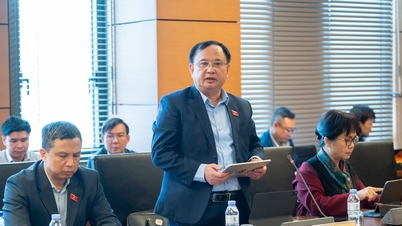

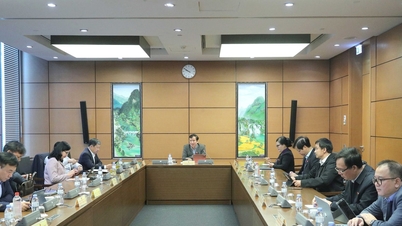

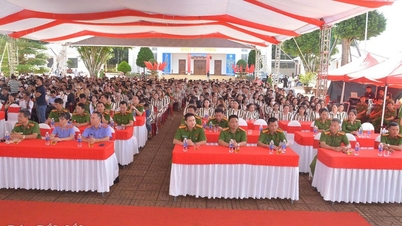

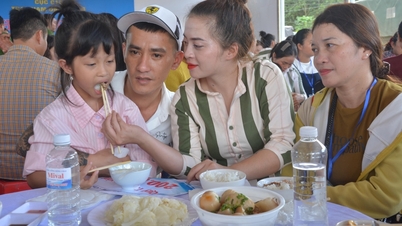
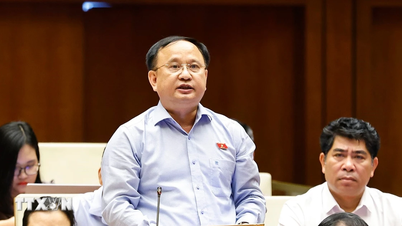



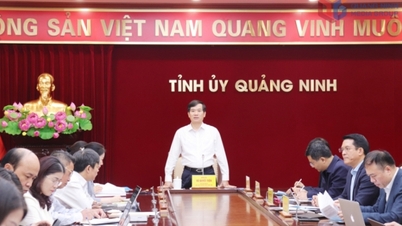





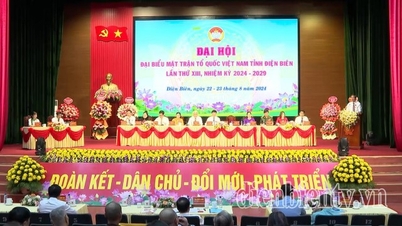

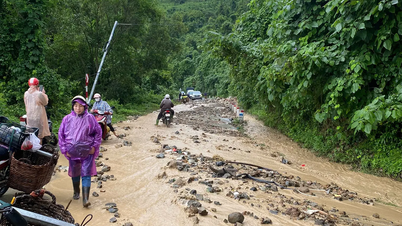






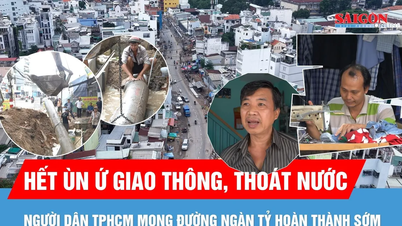

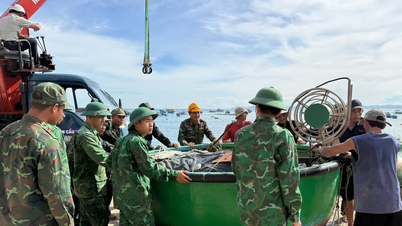





































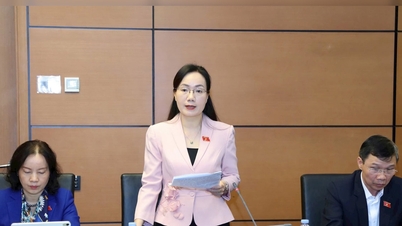

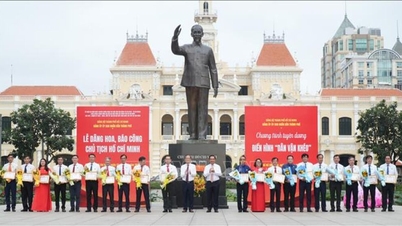










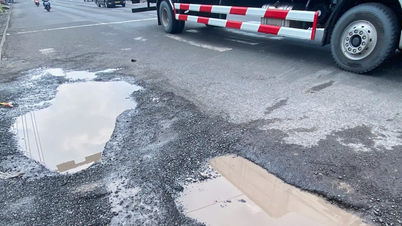
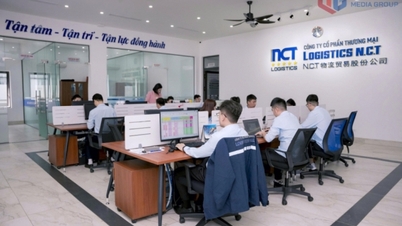

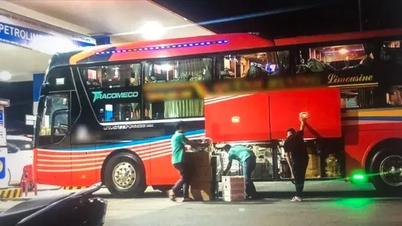
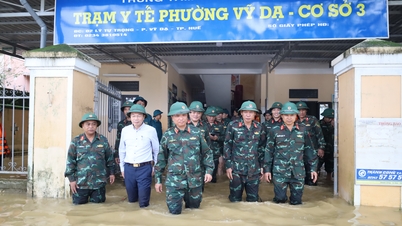

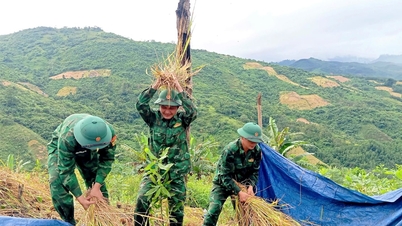















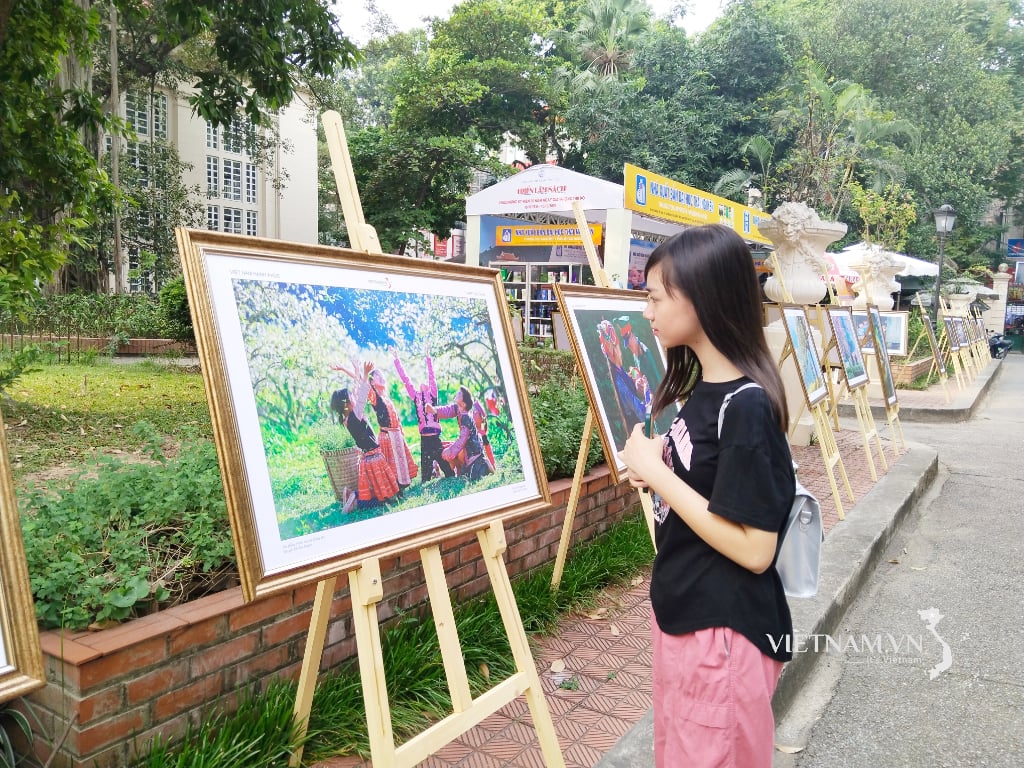

Comment (0)